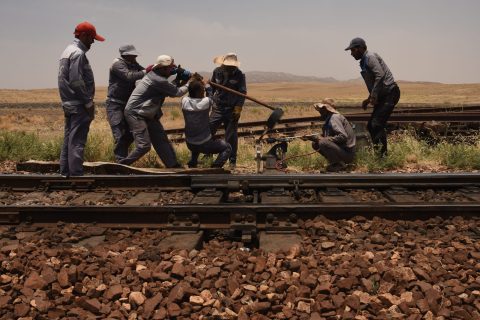Switzerland wants direct rail freight connection with China

A direct railway connection between Switzerland and China could be realised next year. Currently, trains run from Basel to China via the German hubs of Duisburg and Hamburg. However, a direct connection could benefit trade between the countries, said Tufan Khalaji, Managing Director at the Swiss branch of Nunner Logistics.
In April this year Switzerland signed a cooperation agreement with China, promising its backing of China’s Belt and Road Initiative. Since then many delegations have gone back and forth and currently a series of workshops should trigger the interest of Swiss companies to get involved with the project. A direct line would be one of the first results of this cooperation.
Mind shift
“We are currently working hard on setting up a direct connection between Switzerland and China. China is the largest trading partner after the EU and the US”, said Khalaji. “It is not an easy task. Swiss companies are still used to sea freight and they are selling their goods to FOB Chinese ports, although their goods are transported further to the inland of China. They could be more competitive if the sell their goods with an end-to-end view up to final destination including the railway solution. We need a mind shift!”
Apart from a connection via Germany, further on to Poland and Kazakhstan, Nunner also offers a service via Wolfurt and further to Budapest, through Ukraine to China, for their client base in Eastern Switzerland and Vorarlberg (Austria). Although this route is geographically beneficial for the Swiss market, the lead times are still not yet so competitive, explained the Nunner representative. “It now takes fifteen to seventeen days from Budapest to Xian, with three to four days for transit through Ukraine. If this improves with one to two days, this route should become more interesting.”
LCL shipments
Khalaji will be speaking at the European Silk Road Summit, held on 26 and 27 November in Venlo, the Netherlands. He will emphasise the growing importance of LCL shipments (less than container load), an expertise of Nunner Logistics on the New Silk Road. According to Khalaji, this is a niche sector in the transport between Europe and China, as this mostly contains of FCL shipments (full container load).
“The challenge is in providing an end-to-end service. Rail freight is logically always terminal-to-terminal. In order to arrange the delivery to the doorstep of the end customer, you need a big network. We are doing the whole process by our own resources and network”, said the logistics expert.
Duisburg and Helmond
For Nunner, this means that 60 per cent of its rail shipments from China arrive in Duisburg. From there, the FCL boxes moves directly to consignee and the LCL boxes by truck to its distribution centre in Helmond. From this city in the south of the Netherlands, it is able to deliver almost all shipments to its European end destination within 24-48 hours, Nunner promises. “This model is of particular importance to the e-commerce industry, where customers want their products fast.”, said Khalaji.
Do you want to hear more from Tufan Khalaji on this topic? The European Silk Road Summit takes place on 26 and 27 November in Venlo, the Netherlands. Registration for this event is now open. The programme can be found here.
You just read one of our premium articles free of charge
Want full access? Take advantage of our exclusive offer






